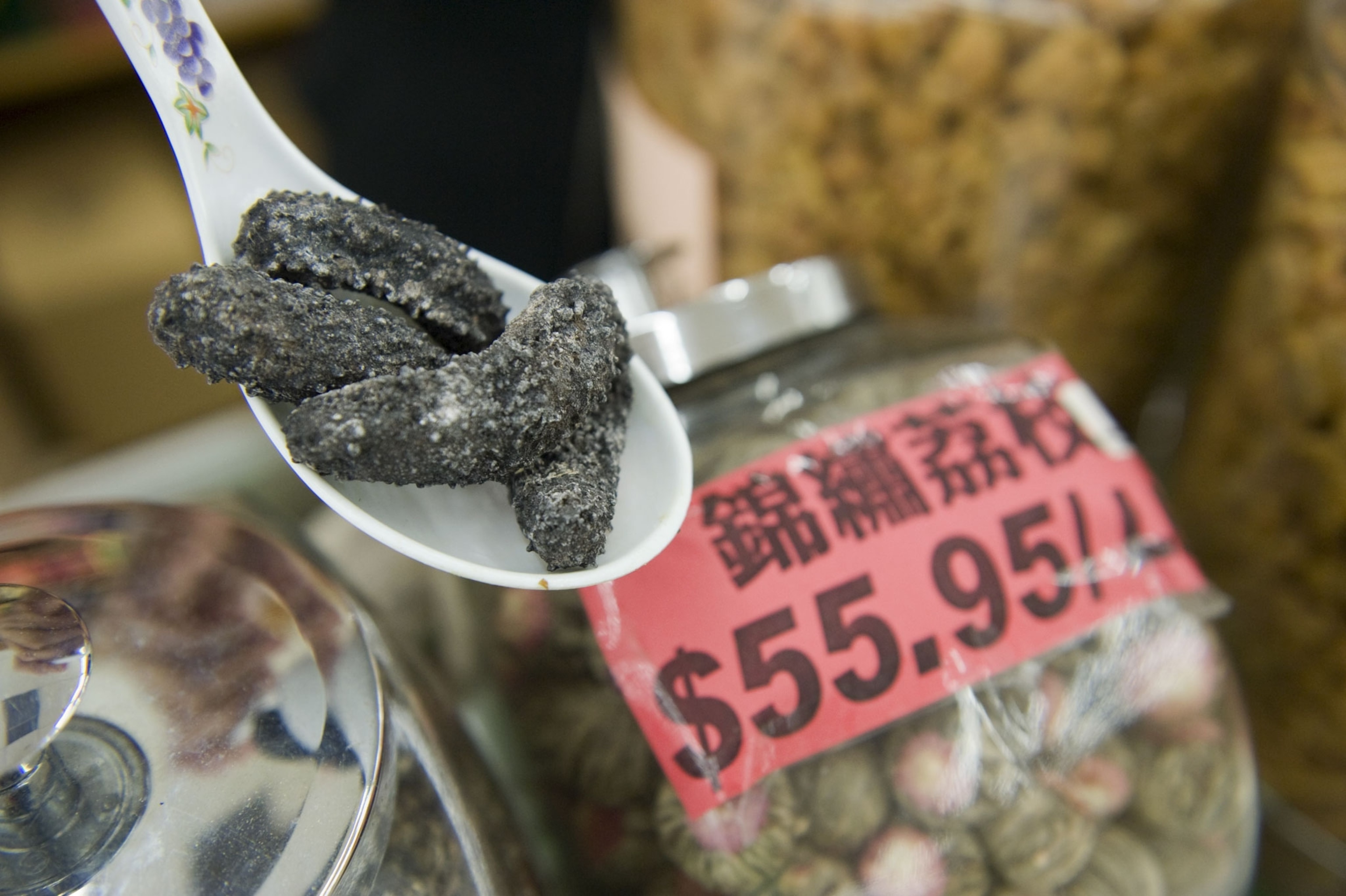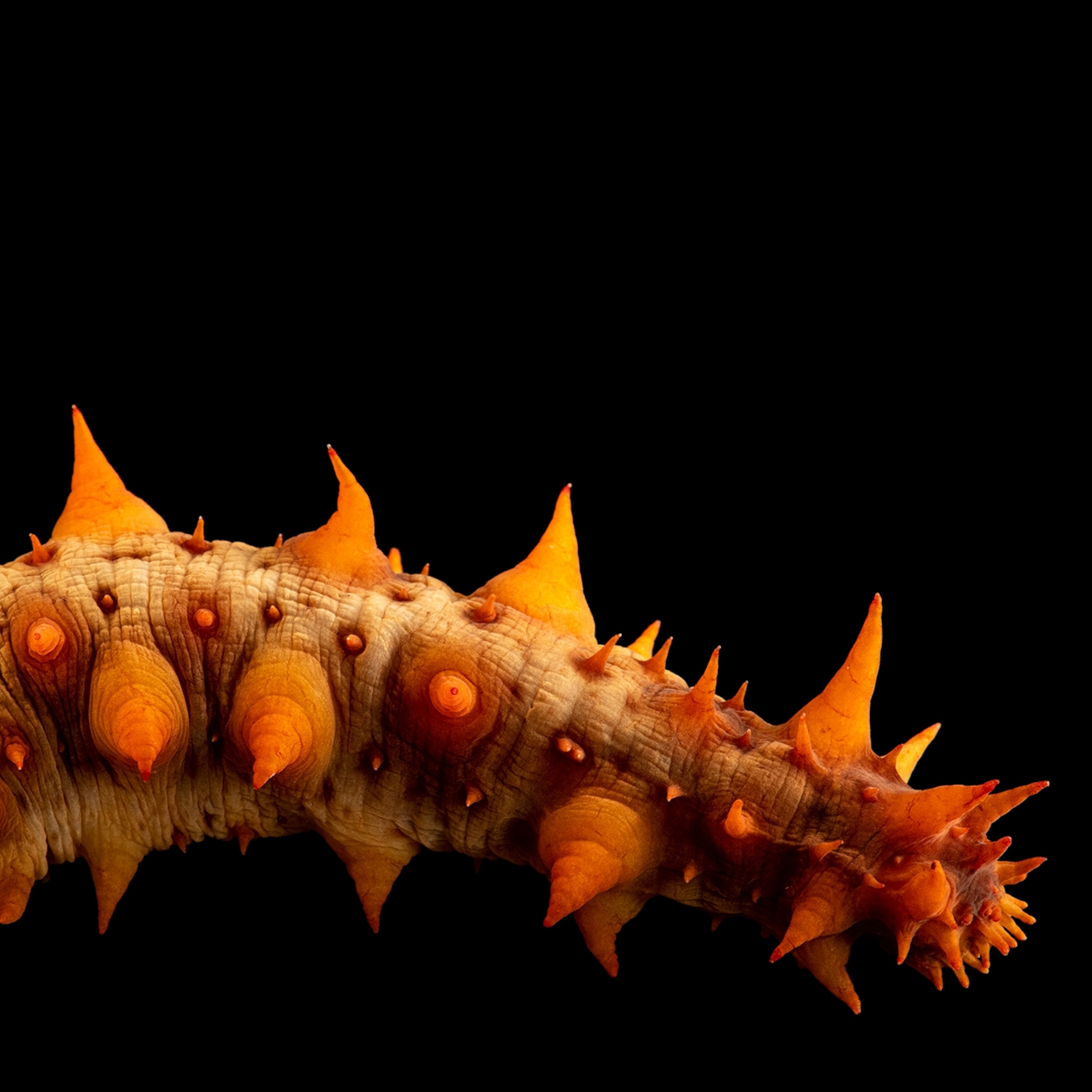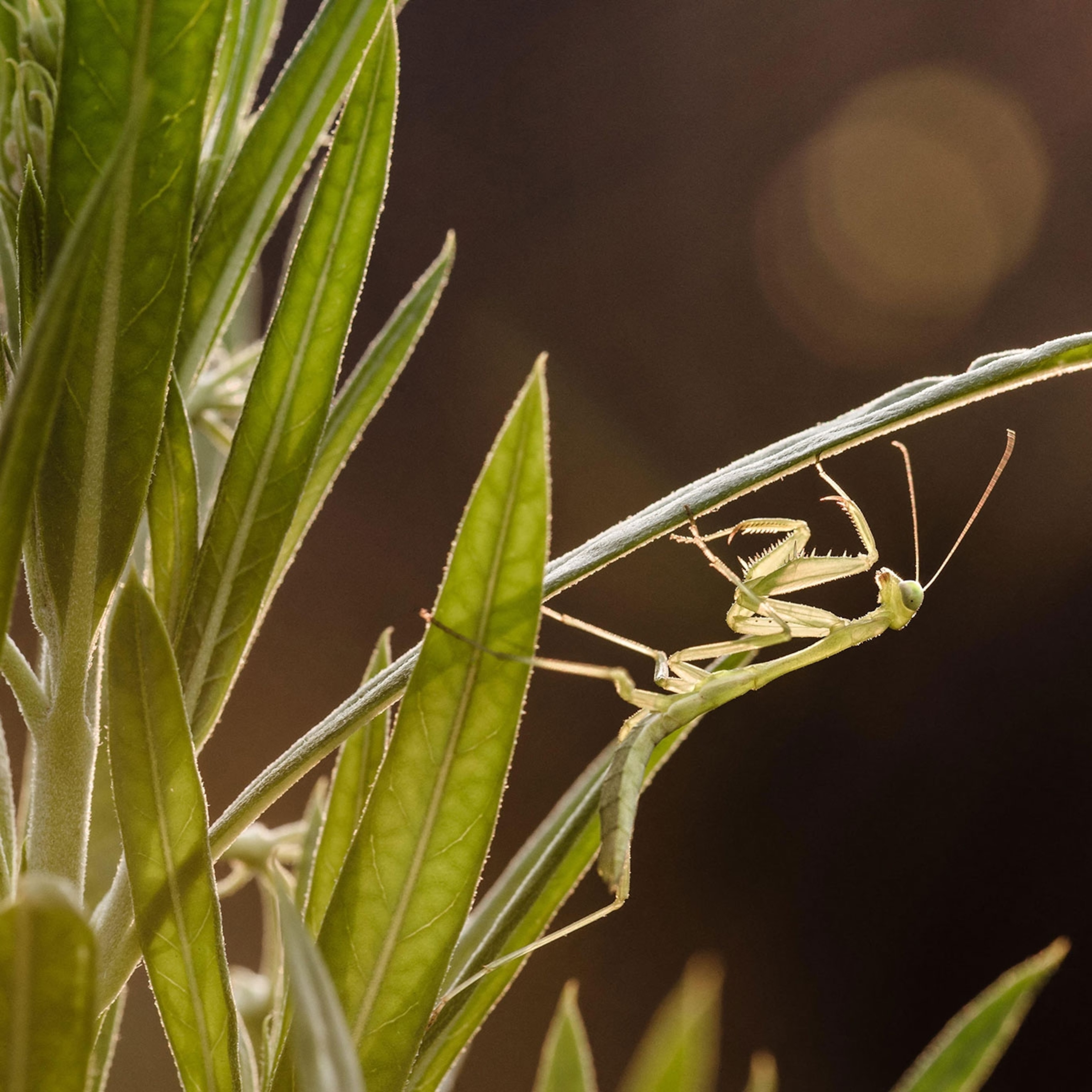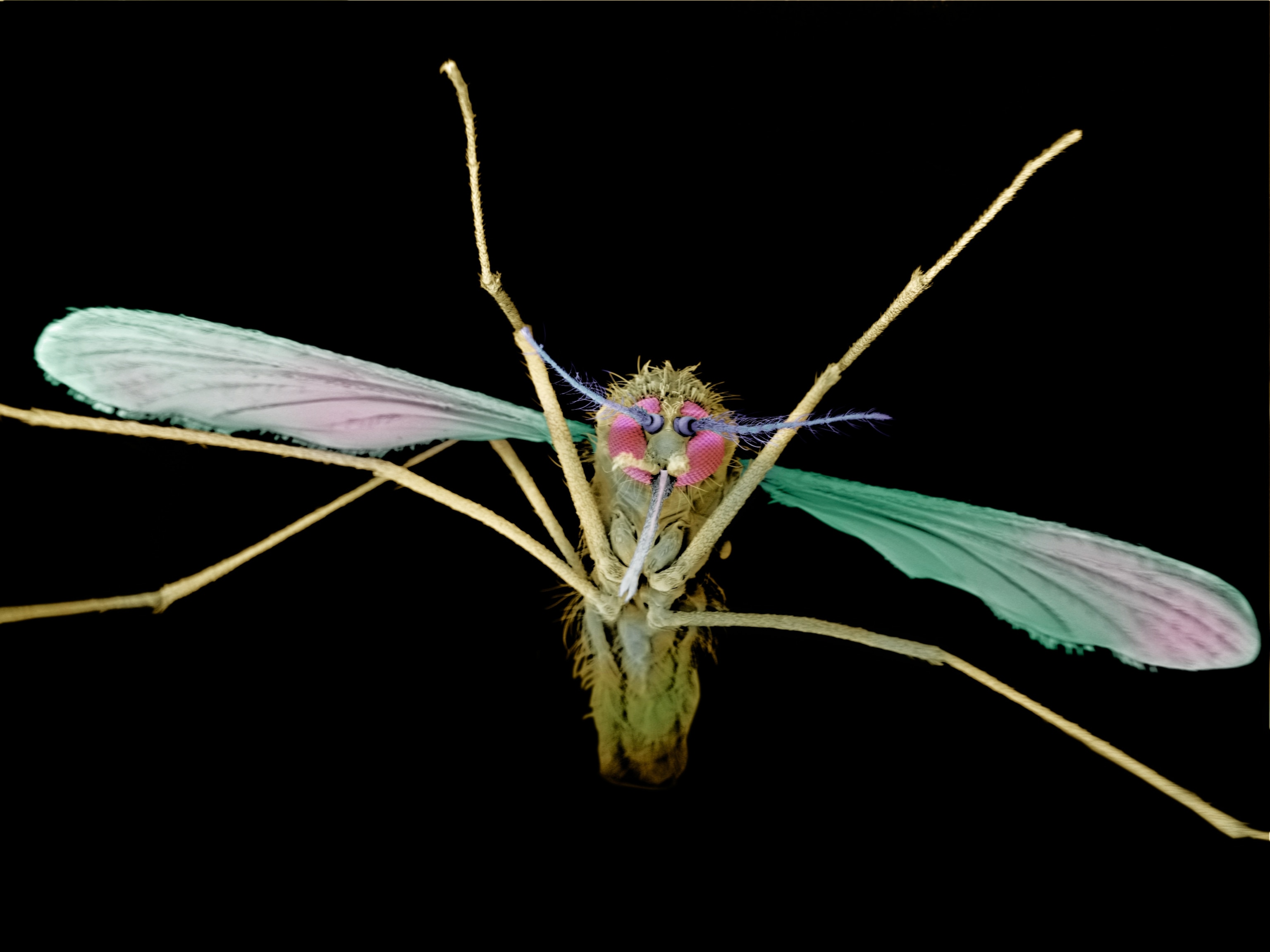
These Bizarre Sea Creatures May Help Save Coral Reefs—If They Survive
Despite the ongoing plunder of the world’s sea cucumbers, the U.S. seems set on barring inspections of their exports.
Sea cucumbers aren’t cucumbers at all. But they share one thing with their terrestrial namesake: You can eat them.
That’s why a study released online on February 19 is disturbing. It shows that demand in China for these soft-bodied, bottom-dwelling marine animals related to sea urchins and starfish—a group known as echinoderms—isn’t declining, as some supposed, but continues to rise.
And that’s bad news for ocean habitats: As garbage collectors and nutrient recyclers, sea cucumbers play a critical role in keeping coral reef and other tropical ocean ecosystems healthy. Their digestive processes may even help buffer dying corals against ocean acidification.
Just a few decades ago the tubular creatures, which vary in length from about nine inches to more than six feet and sport a dizzying array of patterns and protuberances on their leathery hides, carpeted the ocean floor in tropical regions. But the 70-plus species of commercially valuable sea cucumbers are now being fished out of sea after sea to meet demand in an increasingly affluent China.
Scooping them up from the ocean floor is no harder than gathering sea shells. Once cooked and dried into a product called bêche-de-mer (French for “sea worm”), they’re also easy to ship, first to Hong Kong, and from there all across mainland China.
Skyrocketing prices—hundreds and even thousands of dollars a pound in Hong Kong—have led, to cite one instance, to a scourge of violence and looting in the small fishing community of Río Lagartos, on Mexico’s Yucatán Peninsula. Fishing cooperatives there have been powerless to stop the plunder. “It’s like you’re messing with the mafia,” one despondent fisherman told a social science researcher who visited the village in 2015.
Up and down the Yucatán the black market for sea cucumbers has been thriving, with the contraband sometimes smuggled to Asia via the U.S.
Yet against this backdrop, on February 5, the U.S. House of Representatives passed H.R. 2504, a bill that would weaken oversight of international trade in sea cucumbers.
A GLOBAL CRISIS IGNORED
The slowing economy in China might have been expected to dampen prices for bêche-de-mer, but the new study, by the National Marine Science Centre, at Southern Cross University, in Australia, indicates otherwise.
The researchers surveyed luxury dried seafood stores in Hong Kong and Guangzhou, the two major trade hubs for the Chinese market, and found that sea cucumber prices were an average of 16.6 percent higher in 2016 than in 2011, with the value of a few species tripling.
To Steven Purcell, lead author of the study, the spiking demand could present an opportunity for tropical coastal communities. If fishing were restricted to fewer and larger specimens, fishermen could make a living while conserving a renewable resource for the future.
But protecting such a profitable commodity, particularly one that lives in the open ocean, is a challenge. Even when local fishermen agree to a management plan, the high prices of sea cucumbers and the ease with which they’re caught attract opportunists who have no investment in the long-term viability of the fishery.
And as Purcell says, the ever-increasing demand in China is not a passing phase. “This problem is not going away.” What’s needed, he says, is international regulation.
In 2013 the International Union for Conservation of Nature (IUCN), which monitors the status of wildlife, added 16 species of sea cucumbers to its Red List of Threatened Species. Purcell believes that other species classified as “data deficient” are, in fact, highly threatened.
But the IUCN only evaluates; it doesn’t regulate. The one body that regulates international trade in wildlife, the Convention on the International Trade in Endangered Species of Wild Fauna and Flora, has so far declined to vote in trade restrictions for the world’s sea cucumbers. (Purcell says one reason is the misperception that all sea cucumbers look alike and that imposing restrictions would therefore be difficult. To prove how easy it is to tell one sea cucumber from another, Purcell and several other researchers have put together a guidebook.)
LOBBYING AGAINST INSPECTIONS
Maine Congresswoman Chellie Pingree sponsored H.R. 2504—“To ensure fair treatment in licensing requirements for the export of certain echinoderms.” It passed in the House with no debate.
The force behind the bill was Severin Beliveau, a top lobbyist in Maine, who’s been working on behalf of a small group of Maine seafood dealers. Their goal is to exclude sea cucumbers, as well as their round, spiky cousins, sea urchins, from the U.S. Fish and Wildlife Service’s inspections of wildlife imports and exports, a program initiated in 1969 with the aim of preventing the U.S. from unwittingly contributing to the demise of the world’s endangered creatures through international trade.
If H.R. 2504 becomes law, it would mean that any shipments of sea urchins or sea cucumbers leaving the U.S. and destined for human consumption—including, in practice, international shipments moving through the U.S.—would no longer be documented or inspected by the Fish and Wildlife Service. (Read more about the legislation and its supporters.)
Proponents of the bill say that inspections are unnecessary, but Scott Doyle, retired Assistant Special Agent in Charge at the National Oceanic and Atmospheric Administration, who investigated crimes related to the fishing industry for 27 years, disagrees. “Any tool we remove from the inspectors or the investigators hinders their ability to spot illegal product or spot illegal traffickers,” he told National Geographic.
According to scientists, the rush on sea cucumbers may represent a whole new pattern of catastrophic wildlife exploitation. Serving a single destination country, the sourcing network depletes one fishery after another in a phenomenon one leading fishery scientist calls “contagious resource exploitation.” Violence and lawlessness, like that experienced in the Yucatán, often follows.
On the same day Pingree first introduced H.R. 2504, in May 2017, charges were filed against an Arizona-based company for allegedly smuggling more than $17.5 million in sea cucumbers looted from the Yucatán.
H.R. 2504 is currently in committee in the Senate.
Maraya Cornell is a freelance writer based in Los Angeles. Follow her on Twitter.







